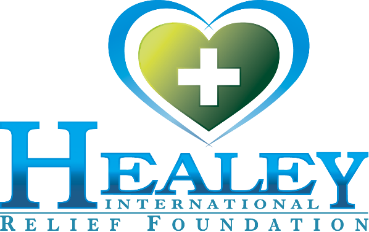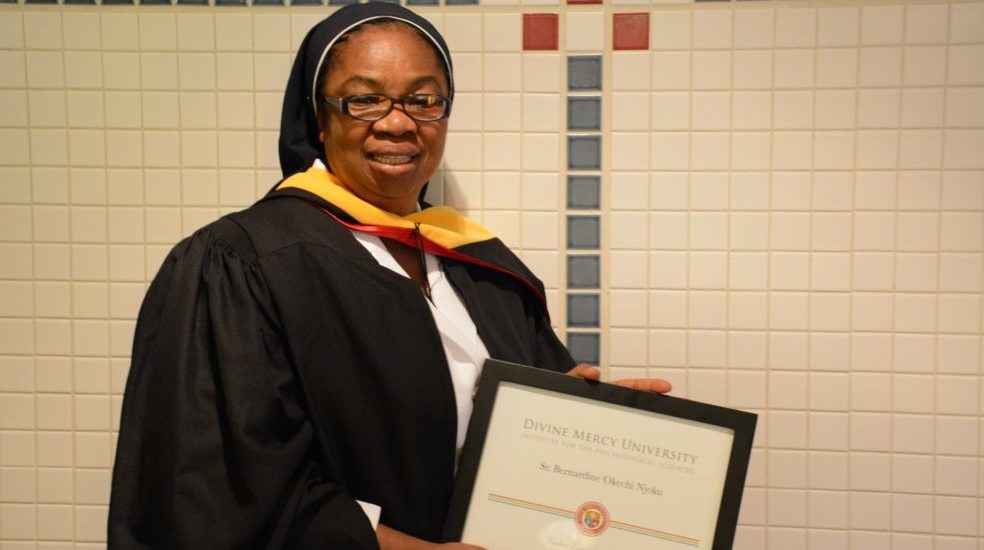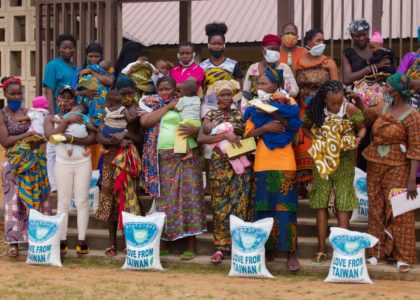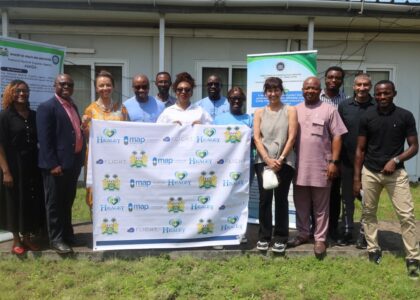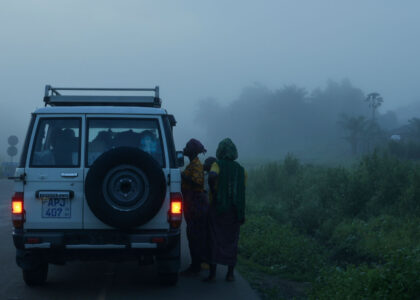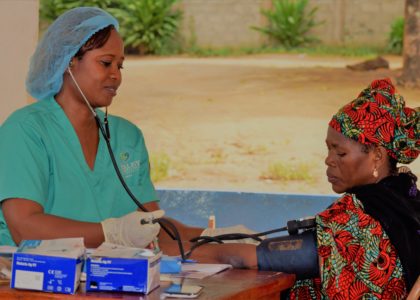Sister Bernardine Okechi Njoku started out as an accountant and educator but has since found her true calling in psychology and counselling. Many people sought Sister Njoku out and shared their problems with her especially after the trauma induced by civil war and Ebola. They would then return and tell her how her advice had truly helped them. The country of Sierra Leone has a great need for counselors now more than ever, and thankfully, Sister Njoku realized her gift for counselling others and soothing their spirits.
While the Government of Sierra Leone is working to increase the number of mental health workers, according to the World Health Organization (WHO), Sierra Leone has only two psychiatrists, two clinical psychologist, and 19 mental health nurses for a population of nearly seven million. In addition based on a survey conducted by the WHO it is estimated that more than 700,000 people in Sierra Leone have severe mental health problems needing medical treatment, making Sister Njoku’s work crucial to the lives of many.
In addition to establishing the Counselling and Peace Center in Bo, Sister Njoku runs a primary and secondary school in the area. She was one of the first sisters to sign up to participate in our program, supported by the Conrad N. Hilton Foundation, to support the education and professional development of Sisters in Sierra Leone. She selected Divine Mission University in Arlington, VA.
After her graduation ceremony we sat down and talked to Sister Njoku about her work and how her Master of Science in Psychology will aid her in Bo, Sierra Leone.
 Could you describe the work you do as Director of the Holy Rosary Counselling and Peace Center in Bo?
Could you describe the work you do as Director of the Holy Rosary Counselling and Peace Center in Bo?
This is the only Counselling and Peace Center where people can come in confidence to discuss their issues. Regarding conflict issues, people come for a variety of reasons. It can be a land dispute, a power tussle or a decision within the family that is causing conflict. Counselling services can include anger management, sexual abuse or emotional abuse. We also hold workshops for the community in order to discuss how conflict issues can be successfully resolved.
How are these mental health services provided throughout the community?
We have the Main Counselling Center in Bo where people can come for services. I am located at this center and there are three other counselors that assist me here. These are counselors that I have trained and we have approximately 15 individuals that each of us are counselling at any given time.
In addition, we have about 40 volunteer counsellors that conduct outreach in their communities outside of Bo. I have trained these individuals as well and they monitor issues in the community, such as gender-based violence or sexual abuse and seek to address these issues within the community. If they are unable to do so then those cases are referred to the Main Center.
How did you choose to attend the Divine Mercy University in Virginia?
I saw an advertisement for it online. When I did more research on their approach I was impressed with the integration of faith with the science of psychology and the practice of counseling. I knew the fusion of faith, reason, and action would help me in my work.
Specifically, how will this new coursework/degree help you in your work?
We must listen and instill hope in people. We must see God dwelling in the person. After the war in Sierra Leone there were many people who were maimed, their arms or legs had been cut off by rebels. I can’t restore an arm or leg but I can help someone see beyond their physical limitations and rise beyond their dreams.
From day one they emphasized the blend between science and faith. To see God in the person and not judge. They wanted you to enter the shoe of the person to truly understand what challenges they were facing.
Sierra Leone is a predominately Muslim country. Does this impact your work?
We turn no one away and we deal with the humanness of the person first. There are fundamental virtues that are shared between the faiths – human values – things basic to both faiths.
What do you plan to do next?
I am going to spend some time visiting with my brother and his family in Minneapolis. Then I will return to Bo and begin putting my new skills to work. Also, many of my fellow students and faculty expressed an interest in coming to Sierra Leone to help with workshops and counselling, so I will begin working to see that this happens.
Congratulations, Sister Njoku, our first Hilton Scholarship Graduate!!
